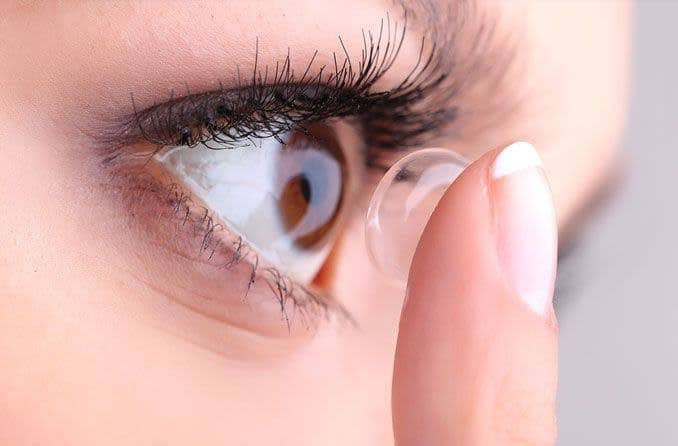Beyond the Blue: How Blue Light Filtering Lenses Work!
- drgunjandeshpande

- Mar 19, 2023
- 4 min read
Updated: Nov 7, 2024

Hey, let me ask you something - have you ever struggled to fall asleep after a long day of scrolling through your phone or working on your computer? If so, you might be experiencing the effects of blue light exposure. But don't worry, there's a simple solution that can help - blue light filtering lenses.
In this article, we'll talk about how blue light filtering (BLF) lenses work, their benefits, and why they're a must-have for anyone who spends a lot of time in front of screens. So sit back, relax, and learn about the world of BLF lenses.

What is Blue Light and why is it important?
Do you know that sunlight is made up of different colours that we can see? These colours are called the 'visible spectrum'. Think of it like a rainbow - each colour represents a different part of the spectrum.
Our eyes are equiped with structures to filter the damaging light from sunrays, especially ultraviolet rays. UVA and UVB are selectively filtered from the rays that reach the light-sensitive area of our eyes by cornea and lens. As we age, this ability reduces.
Blue light is one of the colours in the spectrum, and it's the colour that makes the sky look blue during the day. Blue light is abunduntly present in natural sunlight, more than the screens we use, however, there has been major concern over the exposure of blue light from digital screens and devices.
Typically, blue light is a type of high-energy visible (HEV) light that has a wavelength of between 400-500 nanometers. Now, when we look at screens on our phones or computers, they also emit blue light.
While blue light is important for regulating our circadian rhythms and can have positive effects on our mood and cognitive performance, as published by a study published in Molecular Biology. They found that prolonged exposure to this light from artificial sources can have negative effects on our eyes and overall health. This light has far reaching effects on our sleep as well.

How do Blue Light Filtering Lenses Work?
Blue light filtering lenses have become increasingly popular over the past few years as more and more people have become aware of the potential health effects of prolonged screen time.
BLF lenses work by selectively blocking out certain wavelengths of blue light while allowing other colours in the visible spectrum to pass through. They are typically made with a special coating that reflects or absorbs blue light before it reaches the eye.
These lenses can come in various tints and strengths, depending on the user's needs. Some lenses are designed to block out all blue colour light, while others only block out a portion of the spectrum of colours.
Benefits of Blue Light Filtering Lenses

1. Reduced Eye Strain:
One of the main benefits of blue light filtering lenses is that they can help reduce eye strain, dryness, and fatigue. This is especially important for people who spend a lot of time in front of screens, such as computer programmers, graphic designers, or students.
By reducing the amount of blue light that reaches the eye, these lenses can help prevent digital eye strain, which is a common condition caused by prolonged screen time. Do follow 20-20-20 rule to further imrpove your digital experience. That is, for every 20 minutes of screentime, take a break for 20 seconds and fixate at some object 20 feet away. This relaxes the muscles that help focus at different lengths, and hence reduces straining.
2. Improved Sleep:
Exposure to blue light at night can interfere with the body's natural production of melatonin, a hormone that regulates sleep. This can make it harder to fall asleep and stay asleep, leading to poor sleep quality and daytime fatigue.
Blue light filtering lenses can help improve sleep quality by reducing the amount of blue light that reaches the eye. This can be especially helpful for people who use digital devices before bedtime.
3. Reduced Risk of Eye Disease:
Some studies suggest that prolonged exposure to blue light can increase the risk of developing age-related macular degeneration (AMD), a leading cause of blindness in older adults.
A recent study, published in the Indian Journal of Ophthalmology found that with drastic increase in use of digital devices after the initiation of the COVID-19 lockdown, there was slow deterioration of ocular health across all age groups.
An interesting case study was published by Kim TG et al, where they found a young lady who developed distorted vision after exposure to LED light. It was shown that retinal damage could occur in humans due to prolonged exposure to blue light. They concluded that it was important to be wary of eye exposure and ensure the eyes are covered during LED face mask use.
4. Enhanced Visual Comfort:
These lenses can also improve overall visual comfort by reducing glare and enhancing contrast. This can be particularly useful for people who work in bright environments or spend a lot of time driving. By reducing the amount of blue light that enters the eye, these lenses can help reduce the need for straining to see.
Finally!
So there you have it, folks! Blue light filtering lenses can be a great tool for reducing the negative effects of blue light from digital devices. Whether you're a student, a gamer, or someone who spends a lot of time in front of screens, these lenses can help improve your sleep, and make your screen time more comfortable.
If you're considering blue light filtering lenses, make sure to talk to your eye doctor to determine if they're right for you. Your eye doctor can help you select the appropriate tint and strength of lenses to meet your individual needs, and can also recommend other strategies for reducing digital eye strain and protecting your eye health.










Comments